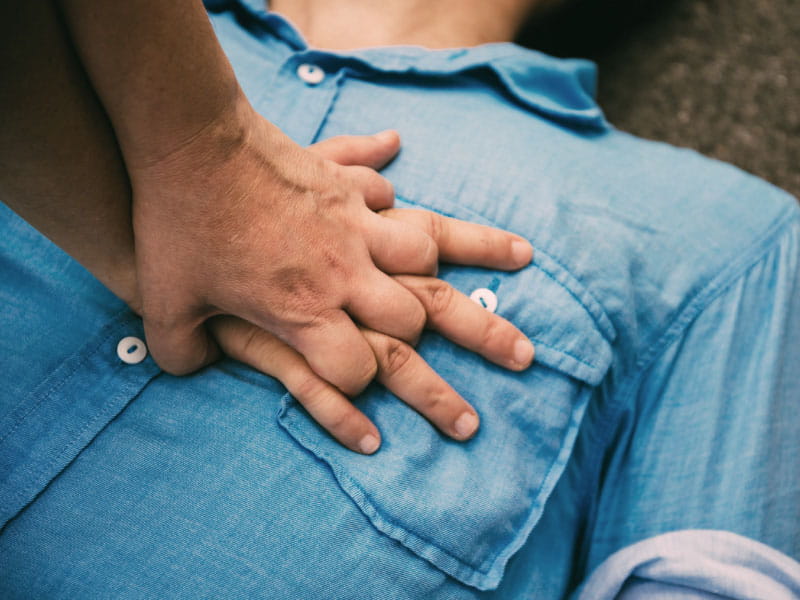Asian adults less likely to survive cardiac arrest despite same bystander CPR rate as white peers
By American Heart Association News

Asian adults in the U.S. are less likely to survive a cardiac arrest outside a hospital than their white peers, even though they are just as likely to receive CPR from a bystander, new research finds.
The study published Wednesday in the Journal of the American Heart Association.
"We were surprised that rates of bystander CPR in Asian adults were the same as white adults, as we have previously found that Black and Hispanic persons with out-of-hospital cardiac arrest have much lower rates of bystander CPR than white persons," the study's senior author, Dr. Paul Chan, said in a news release. Chan is a professor of medicine at Saint Luke's Mid America Heart Institute and the University of Missouri-Kansas City.
Researchers also didn't expect the lower survival rates for Asian adults, Chan said.
"Receiving bystander CPR is usually a very strong predictor of survival after out-of-hospital cardiac arrest. Therefore, it is not entirely clear what may be driving the lower survival rate," he said.
Cardiac arrest occurs when the heart suddenly stops beating. Chances for survival increase when a bystander immediately starts CPR, which happens in less than half of all cases in the U.S.
In the new study, researchers analyzed data from the Cardiac Arrest Registry to Enhance Survival, or CARES, for nearly 279,000 out-of-hospital cardiac arrests involving Asian and white adults in the U.S. from 2013 to 2021. About 5% of the out-of-hospital cardiac arrests analyzed occurred in Asian adults, who were slightly older (an average age of 67 compared to 63), more likely to be female, less likely to have a drug overdose as the cause of cardiac arrest, and less likely to have a heart rhythm that would benefit from the use of an automated external defibrillator, or AED.
The researchers found Asian and white adults in the U.S. who had a cardiac arrest at home or in public had a roughly 42% chance of receiving potentially lifesaving CPR from someone who witnessed the event. However, Asian adults were about 8% less likely to survive to hospital discharge and 15% less likely to survive without neurological problems than their white peers.
The CARES registry did not include Asian subgroups, such as South Asian, East Asian and Southeast Asian. The results may not be applicable to people living in rural areas of the country because those communities are underrepresented in the CARES registry.
Dr. Joseph Wu, who was not involved with the analysis, called the similarity in bystander CPR rates for Asian and white adults "encouraging" and said the findings merit additional research into cardiac arrest survival and neurological outcomes among Asian adults. Wu is director of the Stanford Cardiovascular Institute and the Simon H. Stertzer Professor of Medicine and Radiology at Stanford School of Medicine in California.
"The results here call for us to investigate the biological and physiological factors, as well as socioeconomic determinants of health and outcomes, and how they may impact people in various Asian subgroups," said Wu, the AHA's volunteer president, in the release.




